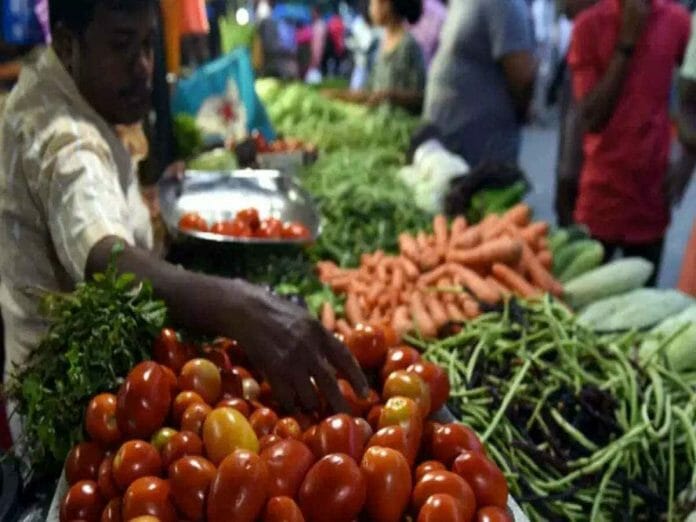Malaysia’s headline inflation eased further to +1.9% YoY in Sep 2023 (Aug 2023: +2.0% YoY; 9M2023: +2.8% YoY; 2022: +3.3%) while core inflation was seen to be steady at +2.5% YoY (Aug 2023: +2.5% YoY; 9M2023: +3.3% YoY; 2022: +3.0%).
Maybank Investment Bank (Maybank IB) has lowered the 2023 inflation rate forecast to +2.6% from +3.0% but raise 2024 inflation forecast to +3.0% from +2.5% – for now pending more information and details on Budget 2024 measures such as subsidy rationalisation and hikes in consumption-based taxes.
Sub-3% monthly headline and core inflation rates
Maybank IB, in a note today (Oct 23), said the headline inflation rate slowed further to +1.9% YoY in Sep 2023 (Aug 2023: +2.0% YoY; 9M2023: +2.8% YoY; 2022: +3.3% YoY) supported by easing in Restaurants & Hotels (Sep 2023: +4.4% YoY; Aug 2023: +4.7% YoY), Furnishings, Household Equipment & Routine Household Maintenance (Sep 2023: +1.5% YoY; Aug 2023: +1.7% YoY) and Food & Non-Alcoholic Beverages (FNAB – Sep 2023: +3.9% YoY; Aug 2023: +4.1% YoY) as non-food inflation slows to 0.9% YoY (Aug 2023: +1.0% YoY).
MoM, headline CPI rose +0.1% (Aug 2023: +0.2% YoY). Headline inflation rate ex-fuel prices slowed to +2.3% YoY (Aug 2023: +2.4% YoY; 9M2023: +3.2% YoY; 2022: +3.2%).
Core inflation was steady at +2.5% YoY (Aug 2023: +2.5% YoY; 9M2023: +3.3% YoY; 2022: +3.0% YoY)
Services inflation also gradually easing further (Sep 2023: +2.6% YoY; Aug 2023: +2.7% YoY) amid dissipating post-pandemic pent-up discretionary spending from economic opening e.g. restaurants & hotels; recreation services & culture; furniture, household equipment & routine household maintenance, the investment bank said.
With 9M2023 headline inflation rate at +2.8% YoY, Maybank IB adjusted their 2023 inflation rate forecast downward to +2.6% from +3.0% as base effect is expected to keep monthly inflation rate sub-3% YoY for the rest of the year.
Revised 2023-2024 inflation forecasts on year-to-date performance and Budget 2024 measures
However, Maybank IB raised its 2024 inflation forecast to +3.0% from +2.5% – for now pending more information and details on Budget 2024 measures such as the removal of price control and subsidies (quantum and timing to be announced later) for chicken, eggs and fuel (diesel & RON95 petrol); service tax hike from 6% to 8% (except services like F&B and telecommunications) plus expansion of the services tax base (to include logistics, non-financial brokerage & underwriting, and karaoke); increase in excise duty for sugar-sweetened beverages from MYR0.40/l to MYR0.50/l; imposition of excise duty on chewable tobacco products at 5% + MYR27/kg, and reduction entertainment duty (FT-KL, Labuan and Putrajaya) from 25% to 10%, 5% and 0% respectively according to categories.
Following the previous service tax hike from 5% to 6% on 1 Jan 2011, headline and service inflation both rose from +1.7% and +1.7% respectively in 2010 to +3.2% and +2.7%, respectively in 2011. To also note, in Dec 2010, RON95 and diesel prices were raised by MYR0.05/l, LPG price was increased by MYR0.05/kg and sugar price was hiked by MYR0.20/kg.
Surprises on the downside, cooling to 1.9% in September amid easing price pressure
Meanwhile, Kenanga Research cited today that the headline inflation edged-down to a 30-month low of 1.9% in September (Aug: 2.0%), below house forecast and market consensus of 2.1%
It fell below its 10-year average of 2.0% due to muted MoM inflationary pressure in two of the largest price components, rent (18.1%) and transport (14.6%). On a monthly basis, the CPI slowed to 0.08% (Aug: 0.15%), partly due to deflation recorded in recreation services & culture (4.8%) and health (1.9%), Kenanga said.
On the other hand, core CPI remained elevated at 2.5%, above its long-term average of 1.8%. This component increased by 0.3% MoM (Aug: 0.2%), primarily due to rising core food prices attributed to the increasing cost of imported inflation caused by the weaker ringgit.
Broad-based moderation led by cheaper key food items
Food & non-alcoholic beverages (3.9%; Aug: 4.1%) cost eased for the seventh consecutive month to its lowest level in 19 months, primarily due to continued MoM deflation in the food at home subcomponent. This is driven mainly by lower prices for fresh meat, fish and seafood.
However, it is worth noting that rice price has soared to 5.0% YoY (Aug: 3.0%), its fastest pace of increase since the 2007-2008 food price crisis.
Housing, water, electricity, gas & other fuels (1.6%; Aug: 1.6%) cost remained unchanged at an eight-month low. On a MoM basis, inflationary pressure was muted (Aug: 0.3%), as a moderate increase in the cost of maintenance and repair of residence was offset by lower electricity costs.
Transport (-0.1%; Aug: 0.0%) cost recorded its second deflation in 31 months. Of note, despite higher Brent crude oil price, the component continued to record zero inflation, partly due to a decline in the cost of air transport (-3.8%; Aug: 7.2%).
Mixed inflation trend across advanced and developing economies have led to upside risks to prices remain at the fore
In the US (3.7%; Aug: 3.7%): Inflation remained unchanged but exceeded consensus (3.6%) due to a sharp increase in shelter costs (0.6% MoM; Aug: 0.4%). However, the core CPI met expectation and trended lower to 4.1% (Aug: 4.3%), which strengthens the case that the Fed has already reached its peak interest rate.
In Japan (3.0%; Aug: 3.2%): inflation eased due to government subsidies on electricity and gas prices and although core prices also slowed to 2.8% (Aug: 3.1%), it is slightly above the consensus of 2.7%. This was mainly due to the ongoing robust consumer spending and rising food costs amid a weak yen.
In China (0.0%; Aug: 0.1%): fell to the brink of a deflation again, primarily due to weak domestic spending and cheaper food prices (especially pork and vegetables). This situation calls for further stimulus and policy support to boost consumption.
2023 headline inflation forecast retained at 2.9% (2022: 3.3%) due to renewed inflationary pressures
Kenanga said Malaysia’sheadline inflation currently averages 2.8% year-to-date and is expected to remain in the range of 1.7-1.9% in the upcoming months. This could potentially lead to a full-year CPI average of around 2.7%, slightly lower than their current forecast of 2.9%.
However, the recent increase in global commodity prices, a weakened ringgit, heightened geopolitical tensions, India’s ban on sugar exports and extreme weather conditions may exert additional upward pressure on inflation in 4Q23.
Even though Malaysa is currently entering a period of heightened uncertainties, Bank Negara Malaysia is still expected to keep the overnight policy rate unchanged at 3.00% until end-2024 due to a stable price outlook and a moderating growth momentum, Kenanga added.









